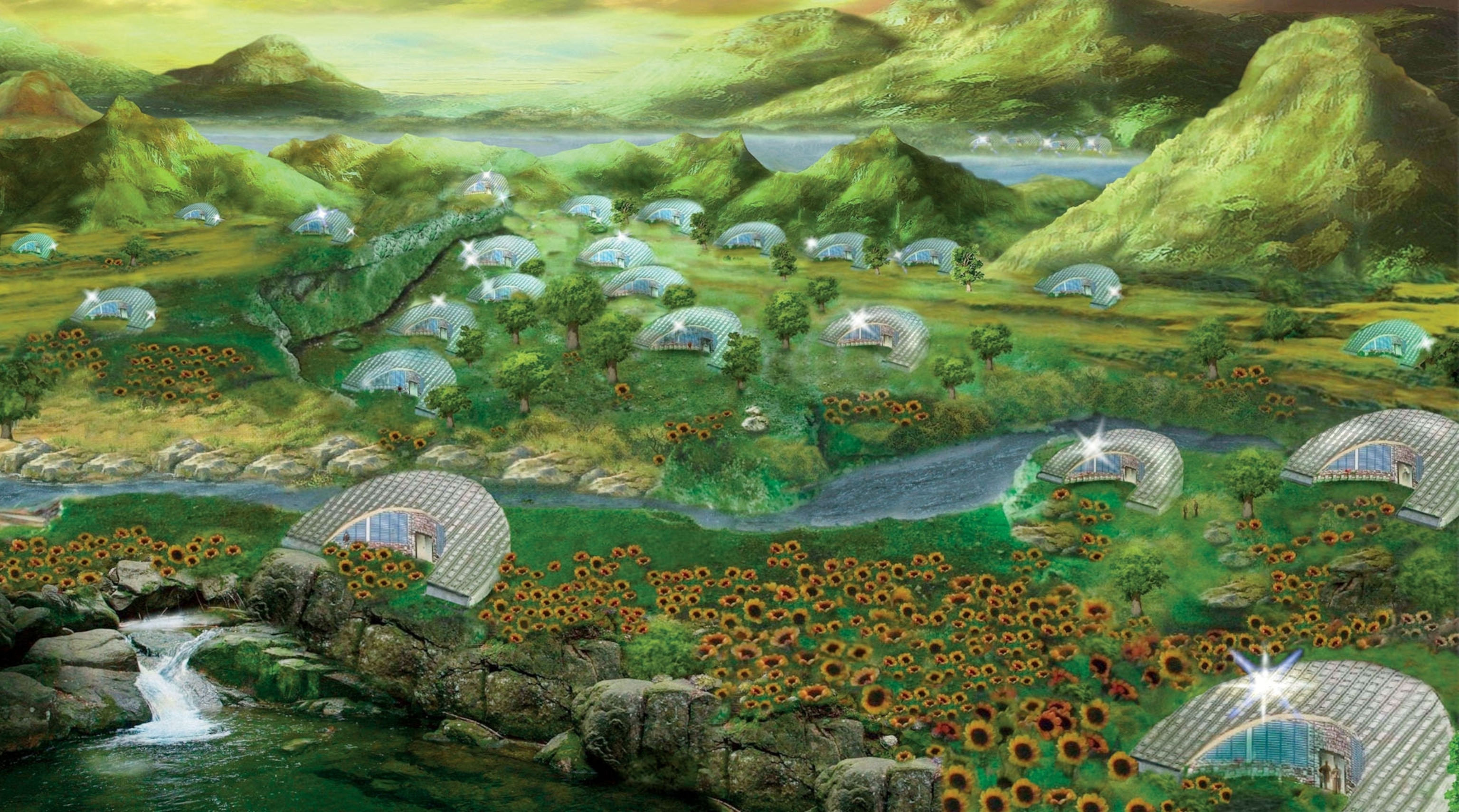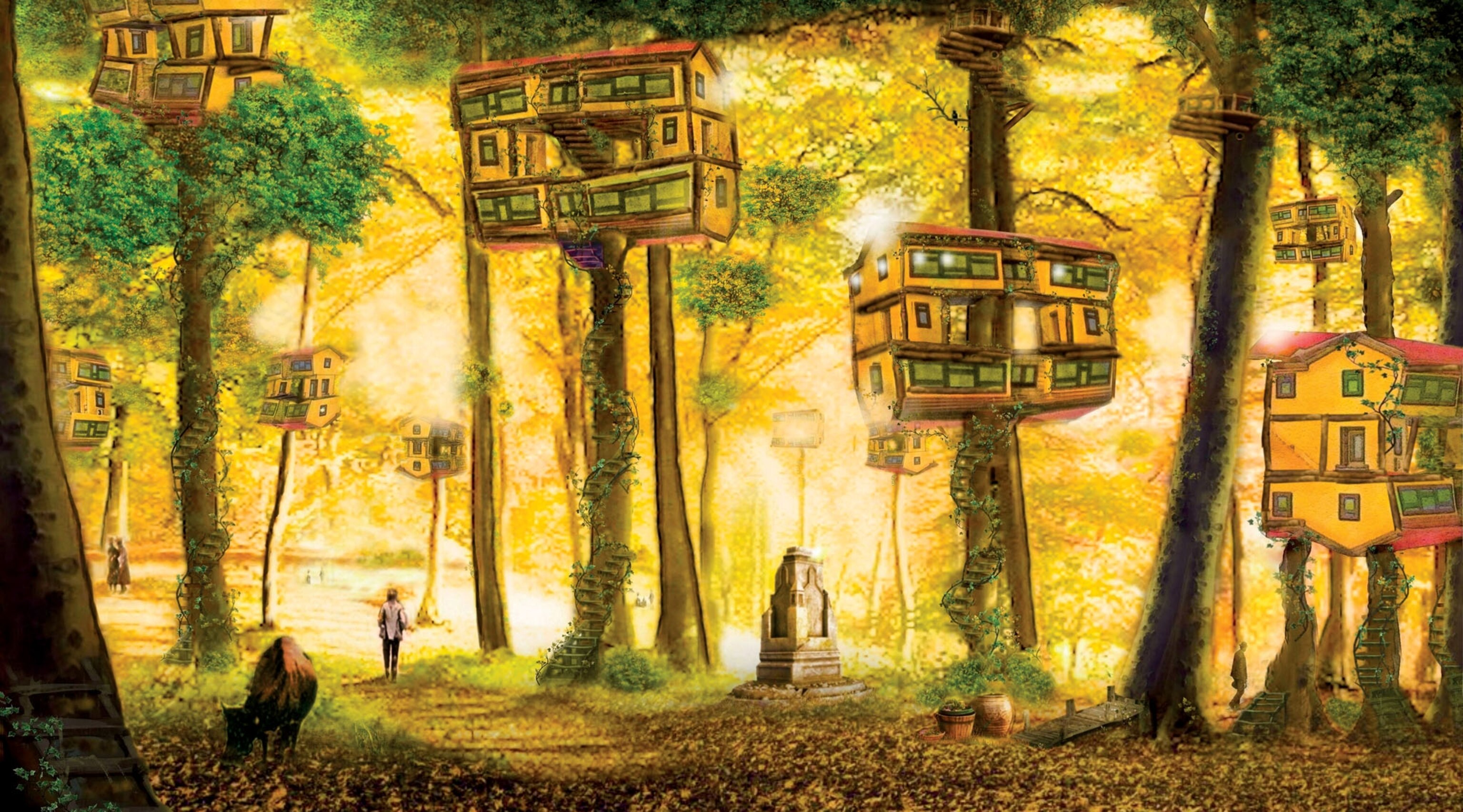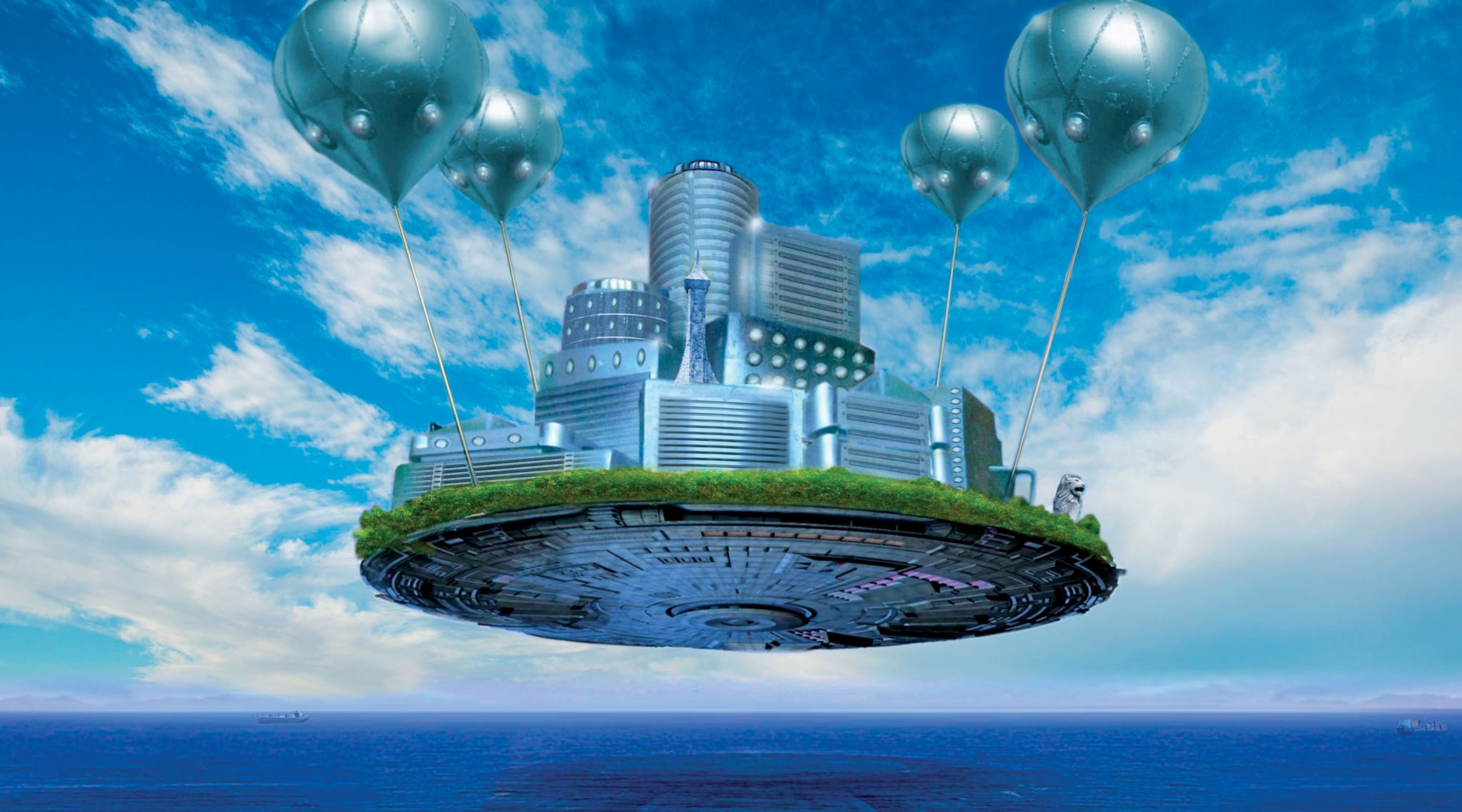
Here’s What Our Cities Could Look Like in 2121
A professor imagines an eco-conscious world where “things can change for the better.”
The year is 2121. Stilted houses in Phnom Penh sit above urban farms fed by the Mekong River. Athens is smog free after a ban on cars, and Tokyo’s families live in nuclear radiation–proof homes. In Greenville, South Carolina, off-the-grid homes are powered by solar energy, and water is filtered off the roof.
These cities of the future spring from the mind of Alan Marshall, an environmental social science professor at Mahidol University in Thailand. With the help of university students from around the world, Marshall imagined what cities that had successfully adapted to the next century’s environmental threats would look like. He collected those visions in the book Ecotopia 2121—and published it 500 years after Thomas More first wrote of an imagined, perfect place in his book Utopia. “The main thing about the utopian impulse is that things can change for the better,” says Marshall.

The Ecotopia project grew from Marshall’s concern about the earthquakes that threaten his hometown of Wellington, New Zealand. Designs that anticipated potential disasters, he realized, could ensure the city’s survival. He wondered what it would look like if the population embraced hobbit-style dwellings rather than high-rise apartment buildings. “We use fantasy as a way to make people think differently,” says Marshall, whose cityscapes combine rustic sustainability with futuristic design.

After years of working on solutions, Marshall has grown more confident that society will be able to prevent a dystopian future. Nevertheless he’ll explore worst-case scenarios in “Frankencities,” his next project. “If we don’t change our ways, this is what will happen to our cities—they’ll become unlivable,” Marshall says. “It’s scary, but it’s not written in stone.”